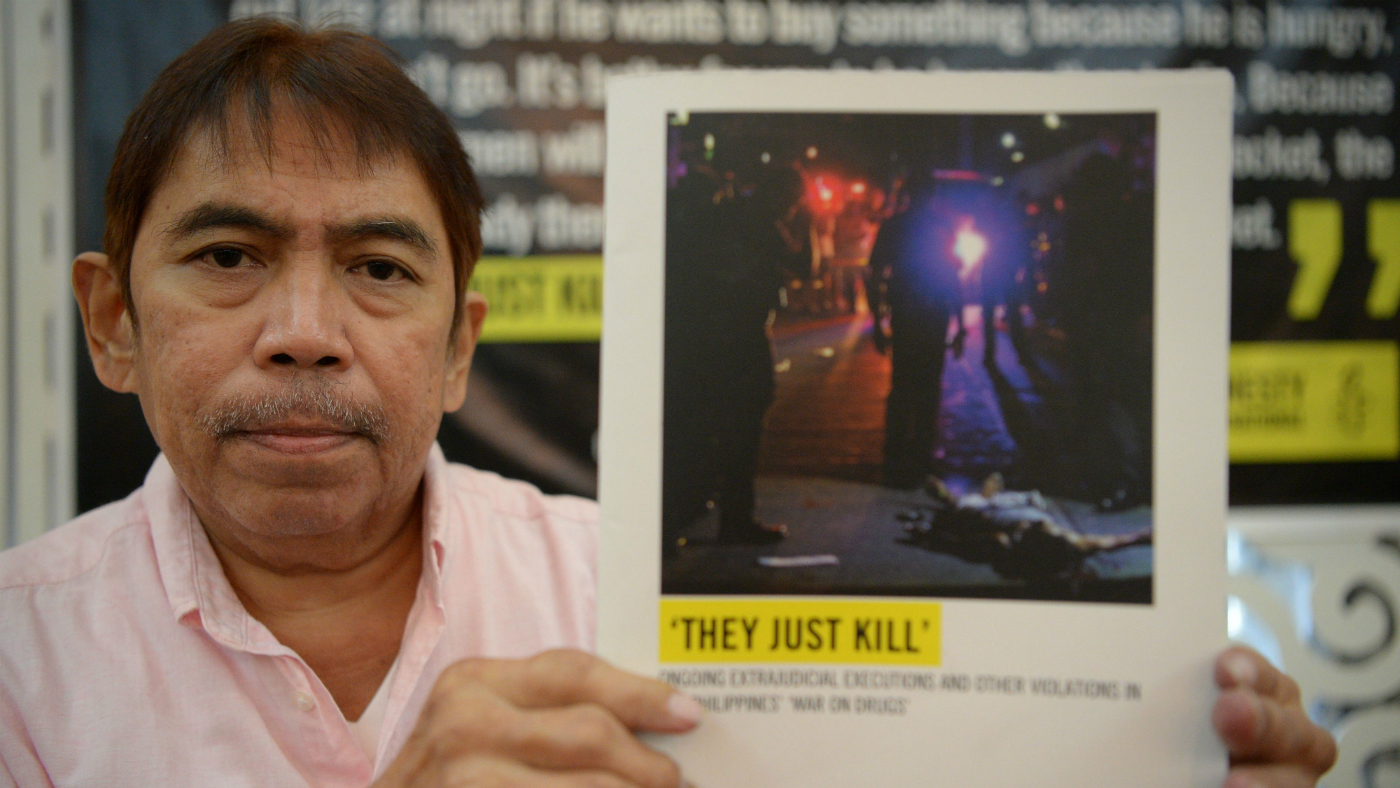The killing fields of the Philippines: what’s going on?
Amnesty International calls for UN investigation as thousands are killed in President Rodrigo Duterte’s war on drugs

A free daily email with the biggest news stories of the day – and the best features from TheWeek.com
You are now subscribed
Your newsletter sign-up was successful
Amnesty International has urged the United Nations to launch an investigation into possible crimes against humanity committed as part of the so-called war on drugs in the Philippines.
In a new report, the human rights group said the epicentre of the country’s killings had moved from the capital Manila to Bulacan province, in central Luzon, which it said was “now the country’s bloodiest killing field”.
President Rodrigo Duterte’s murderous anti-drug campaign has raged on since the beginning of his term in office three years ago, said Amnesty.
The Week
Escape your echo chamber. Get the facts behind the news, plus analysis from multiple perspectives.

Sign up for The Week's Free Newsletters
From our morning news briefing to a weekly Good News Newsletter, get the best of The Week delivered directly to your inbox.
From our morning news briefing to a weekly Good News Newsletter, get the best of The Week delivered directly to your inbox.
“The Philippine government has acknowledged at least 6,600 killings at the hands of police. Evidence points to many thousands more killed by unknown armed persons with likely links to the police,” the organisation reports.
What else is Amnesty saying?
Nicholas Bequelin, Amnesty International’s regional director for East and Southeast Asia, said the war on drugs is “nothing but a large scale enterprise for which the poor continue to pay the highest price”.
It carried out interviews with 58 people, including witnesses of extrajudicial executions and families of the victims, for its report, titled They Just Kill.
A free daily email with the biggest news stories of the day – and the best features from TheWeek.com
Police are operating with “total impunity” as they murder people from poor neighbourhoods without any legal process, routinely justifying their lethal force by claiming the victim was armed and had fought back during a drug sting, says Amnesty. But family members repeatedly refuted the claims and in some cases said the victims never even owned a gun.
The group has called on the UN to investigate “gross human rights violations and possible crimes against humanity”.
President Duterte has defended his actions by saying people involved in drugs are “criminals” and that killing them is “justifiable”, it said.
What happens next?
The UN is expected to hold a vote this Thursday on a mandate to investigate deaths throughout the country’s three-year war on drugs.
Human rights groups are in Geneva this week lobbying for approval for a UN Human Rights Council resolution, reports The Daily Telegraph.
Duterte’s spokesman Salvador Panelo claims any resolution would be an interference as other nations may have been misguided by “false news”.
“Let our own group assist our Filipinos. We don’t need interference from others. We have [our] own human rights groups,” Panelo said, as reported by PhilStar Global.
Investigators hope the Amnesty report “will provide crucial evidence to nudge the United Nations Human Rights Council in Geneva towards passing a resolution that would initiate a year-long investigation in the Philippines by UN special rapporteurs”, says the Telegraph.